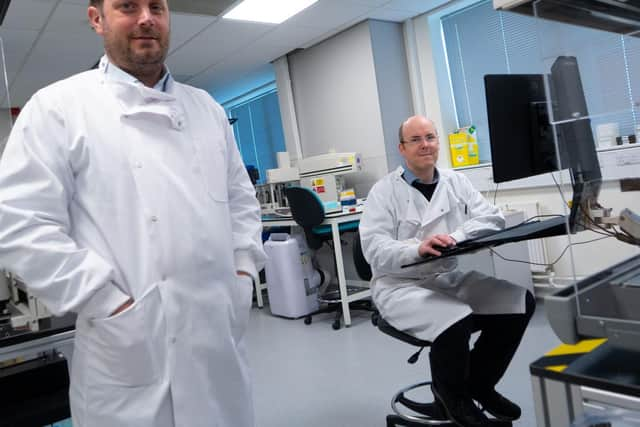York-based Aptamer Group working on test that will diagnose virus in seconds
The test works using aptamers, synthetic molecules that are made from DNA or RNA that fold into unique three-dimensional structures that allow them to bind to targets with high affinity and high specificity.
This means aptamers can be generated rapidly to discriminate between closely related molecules making them ideal for developing point of care diagnostics against rapidly emerging threats. Aptamer said it was talking to two of the world’s largest lateral flow diagnostics test manufacturers who have the capacity to produce millions of tests.
Advertisement
Hide AdAdvertisement
Hide AdUsing in-vitro techniques it believes it can create aptamers that are engineered to bind with high selectivity to a variety of targets. These include, but are not limited to, proteins, small molecules, whole cells, and even whole organisms; meaning they can employ aptamers in the fight against COVID-19.


Dr Arron Tolley, chief executive, said: “We have developed aptamers that bind directly to the virus particle and are developing an antigen test which will detect the presence of the virus in saliva. This will enable us to see whether a person is currently infected. This is different to the currently available tests which detect the presence of antibodies to the virus, which shows if an individual has previously been infected.
“We have already developed highly specific reagents to the Covid-19 virus and are currently in discussions with multiple global diagnostics companies who are testing our reagents in multiple test formats.
“A rapid results test for Covid-19 will be a complete game-changer in the fight against the virus. It will enable more confidence in reducing lockdown restrictions, and rapid testing in areas including hospitals and airports will help the government to manage the R-rate to below one and minimise the spread of the virus.”